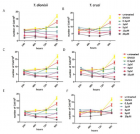About Assam University
Assam University
Articles by Assam University
Galenic hospital laboratory during COVID-19 emergency: A practical experience in an advanced country
Published on: 31st October, 2020
OCLC Number/Unique Identifier: 8870088144
In the actual COVID-19 emergency, as pandemic disease, in many countries at the same time there was the rapid need to use preventive and therapeutic measures to control the diffusion of infection.
In PC AREA (Italy north) in the period between March and May 2020, in fact, were observed about 1000 deaths related to COVID-19 (in march 2020 + 271% death vs 2019). Between all the measure submitted by public international institution like WHO, OMS, CDC and many other, the deeply use of disinfectants product became a crucial fact in safety procedure and protocols. The high amount of this disinfectants and antiseptic was needed especially in hospital settings or assimilates structure (named as COVID-19 hospital) but also for territorial healthcare need. So it was needed to buy from industries this product but also to start an internal production in galenic laboratories. This because pharmaceutical industries not provided in some cases the request amount of this “”safe life products. In this work is reported a practical experience in a public hospital, Pc AREA related GALENIC extra -ORDINARY PRODUCTION of disinfectants and antispetics. The result of this local experience experience can be easily translated to other countries in the world (advanced or also not advanced).
Impact of Calcium Phosphate Nanoparticles on Rice Plant
Published on: 21st February, 2017
OCLC Number/Unique Identifier: 7286357385
Calcium phosphates are of great interest in medicine, biology, agriculture and materials sciences. The present study evaluates the effect of calcium phosphates nanoparticles on biochemical changes in rice. Nanoparticles increased the growth rate and affect the physiology of the plant. Calcium phosphate nanoparticles may help in the formulation of new nano growth promoter and nano-fertilizers for agricultural use. Therefore, it could potentially help in reduction of the quantity of fertilizer applied to crops and contributing to precision farming as it reduces fertilizer wastage and in turn environmental pollution due to agricultural malpractices. However, detail physiological and molecular understanding of its impact on rice crop plant is needed in future to validate its prospective application in agriculture.
Physiological impact of Zinc nanoparticle on germination of rice (Oryza sativa L) seed
Published on: 29th August, 2017
OCLC Number/Unique Identifier: 7286344217
Nanoparticles affects growth and development of Plant. Zinc is an important micronutrient that regulates various physiological responses in plant. Application of nanoparticles for modulating plants physiological response is a recent practice. Zinc nanoparticles has been widely used in industry for several decades. However, no significant work had been made on its potential use in agriculture. Understanding physiological effect of Zn NP on rice seed germination could suggest the basis for its prospective application in agriculture to improve plant growth. In the present experiment effect of Zn NP was studied in Kmj-6-1-1 which is a commonly growing rice cultivar of Karimganj district of Assam, India. An exposure to Zn NP (0 mg/L, 5mg/L,10mg/L, 15mg/L, 20mg/L & 50mg/L) caused significant changes in radicle and plumule length , mass ( fresh & dry mass) and seed moisture content in rice. Antioxidant enzymes like guaiacol peroxidase (GPx), catalase (CAT), superoxide dismutase (SOD) and gluthathione reductase (GR) also increased due to ZnNP treatment. This suggest that Zn NP may significantly alters antioxidant metabolism during rice seed germination. In conclusion, Zn NP protected rice plants from ROS damage by improving levels of antioxidant enzyme activities during germination. As a consequence the Zn NP treated seeds, showed better potential for germination. Further, genomic analysis of germinating rice seeds are needed to elucidate the molecular mechanisms by which Zn NP modulates germination process in rice.

HSPI: We're glad you're here. Please click "create a new Query" if you are a new visitor to our website and need further information from us.
If you are already a member of our network and need to keep track of any developments regarding a question you have already submitted, click "take me to my Query."


























































































































































